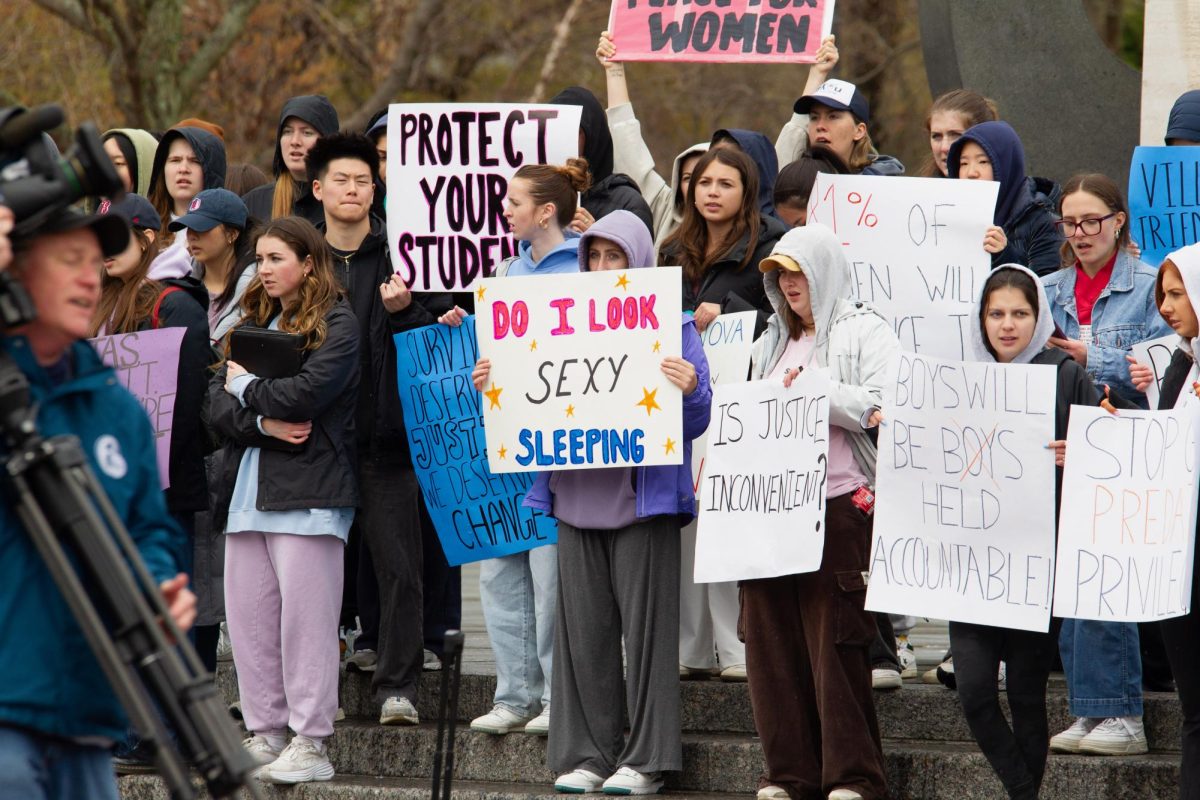This year, the 47th annual Donald A. Giannella memorial lecture held in the Arthur M. Goldberg Commons at the Charles Widger School of Law hosted Editor of Wall Street Journal’s Weekend Review Adam Kirsch for a talk on his book, “On Settler Colonialism: Ideology, Violence, and Justice.” Kirsch is a poet, literary critic and author, as well as a member of the American Jewish intellectual scene.
Settler colonialism is a multi-faceted phenomenon that revolves around the study of a kind of colonialism in which the colonizers permanently claim the land in order for their own populations to inhabit it. It involves the displacement or elimination of Indigenous populations to make way for settlers, who aim to establish a new society that mirrors their own cultural, political and economic systems. This phenomenon is not singular and endures beyond the initial occupation by the colonizer.
“Invasion is a construction, not an event,” Kirsch said. “The entire history of countries is through the lens of colonial experience.”
Kirsch examined some historical examples of countries most strongly afflicted with settler colonialism, including the United States, Canada and Australia. It is a shift in mindset for most people to consider themselves settlers who have no right to inhabit or real ownership of what they consider to be their land. Self-identification of one’s settler status is a rhetorical consideration and requires some historical understanding of colonialism, its reach, devices and enduring impact.
Given his Jewish background, Kirsch started to explore questions examining Israel through the lens of settler colonialism. The land Israel and Palestine exist on is the most fought over piece of land throughout history because of its sacred ties to Christianity, Judaism and Islam. Also, it has a strategic location at a crossroads between Asia, Africa and Europe. There is contention over what group is native to the territory, and Kirsch identifies everyone in Israel as settlers. The Zionist movement was a movement to reclaim the homeland of the Jewish faith and create a permanent settlement for a consistently displaced, targeted, and marginalized group. To Palestinians, Israelis are settlers on their land, and Kirsch says that this colonialism is being resisted with weapons and bombs.
However, it is more complicated than Hamas acting as a moral resistance against settler colonialism. Kirsch says, Hamas is foundationally a “reactionary fundamentalist religious group,” this objective is being conflated with progressive justice and combatting settler colonialism and reframed in a positive light that ignores consequences of Hamas’ methods and motivations, although it may be advancing such a cause. Kirsch discussed how despite the status of Hamas as a fundamentalist group its actions align with fighting Israeli occupation of Palestine it is not the primary objective of the group.
There is no easy solution to the Israel-Palestinian conflict that does not perpetuate further conflict, which is exactly why we have seen no resolution between the two nations for so many years. Kirsch discussed an idea in Jewish religious property known as despair. It is not uncontrollable sadness, but rather lamenting the loss of an item you will never get back. Once what was taken from someone trades hands and someone else acquires it through a lawful or valid means, the one it was taken from no longer has the right to take it back. It is a limit of justice that forces one to reckon with the consequences of the loss. This would be the price of a settlement between Israel and Palestine, a settlement that Kirsch claims could only be achieved by division of the land and enforced coexistence.
There would be a despair of justice by both groups and peace cannot “uncommit the injustice that has been perpetrated,” but maybe it can prevent further injustice.







